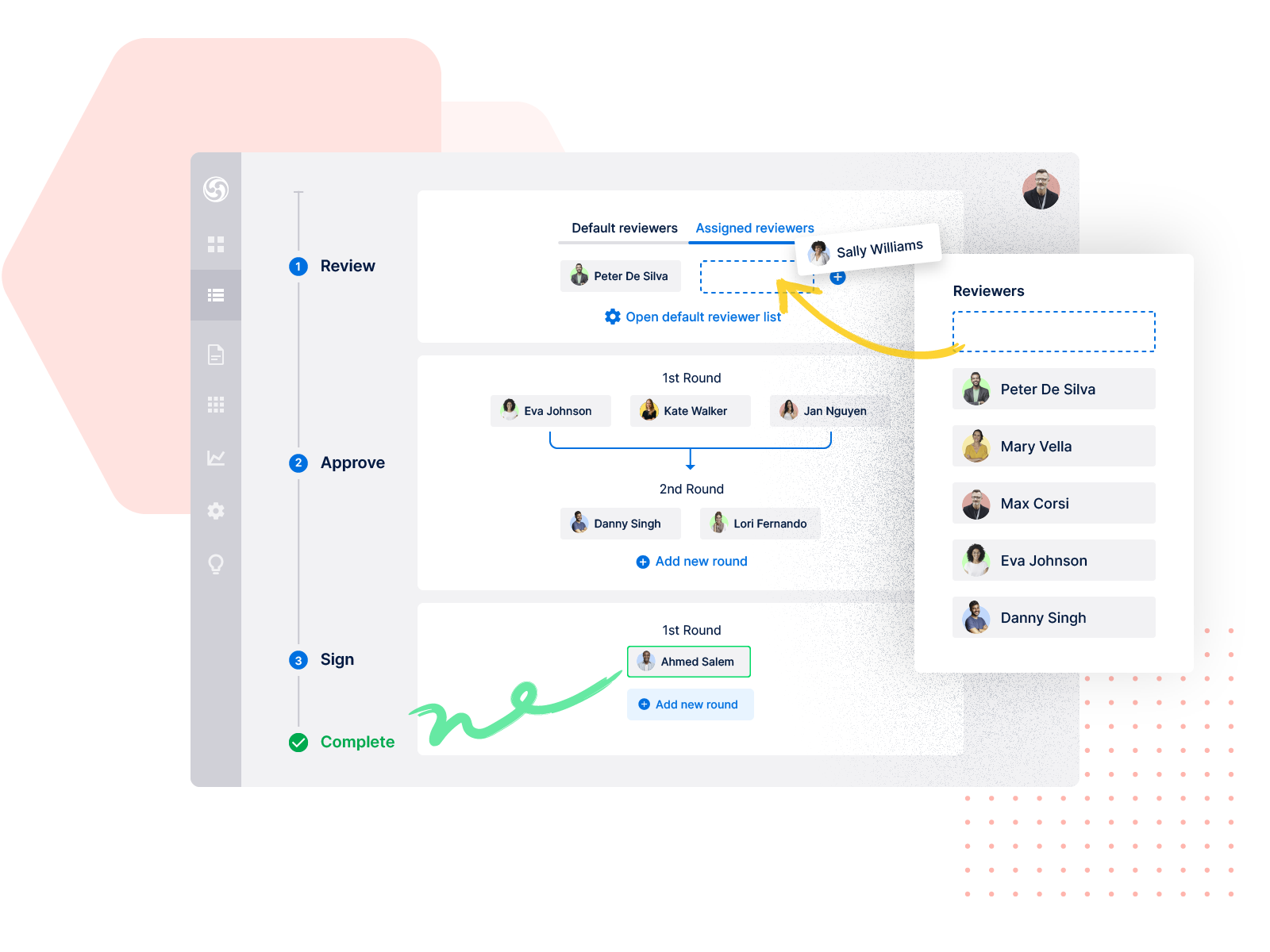Legal Workflow Automation
In the world of corporate law, time is a precious commodity. With legal teams constantly managing a multitude of tasks and processes, it's essential to find ways to streamline workflows and maximise efficiency. This is where legal workflow automation comes in. By utilising professional tools and technologies, legal teams can automate many of their most time-consuming tasks, freeing up valuable time and resources that can be used to drive strategic outcomes for the business. In this article, we'll take a closer look at legal workflow automation, its key features, and how it can benefit your legal function.
What is legal workflow automation?
Legal workflow automation involves the use of software tools and technologies to streamline and scale and streamline legal processes within a corporation. By automating these processes, legal teams can reduce manual tasks, eliminate errors and duplication, and ultimately improve their productivity and efficiency, often resulting in lower costs.
Legal automation tools come with a range of features, including:
automated document generation
document review and approval workflows
contract management
e-signature capabilities.
These features help legal teams to manage their work more efficiently, reduce errors, and ensure compliance with legal requirements. By automating legal workflows, teams can focus on higher-value tasks such as strategic planning, decision-making, and engaging with stakeholders. Let’s dig deeper into the advantages of workflow automation for legal teams.
Benefits of Using Legal Workflow Automation
There are numerous benefits to using legal workflow automation in a corporate legal setting.
Save Time and Money
Legal workflow automation can save time and reduce costs associated with manual processes which is ever more important in times of reduced budgets. By automating legal workflows, legal teams can save countless hours of administrative work and free up time to focus on more complex legal matters. This ensures highly qualified and expensive staff are kept engaged delivering value on important matters rather than becoming frustrated by working on monotonous and repetitive tasks.
Increased Efficiency and Accuracy
Legal workflow automation can greatly increase the efficiency and accuracy of legal processes within a corporation. By automating tasks such as contract review, document management, and legal research, legal teams can reduce errors and inconsistencies that can arise with manual processes. The quality of documents are standardised and future proofed.
Increased Collaboration and Communication
Automation can also help to streamline communication and collaboration between legal teams and other departments within the organisation. For example, by automating the process of reviewing and approving contracts, legal teams can ensure that all stakeholders are notified and involved in the process, reducing the risk of miscommunication or delays. This can also help to improve the organisation's overall responsiveness to legal issues, allowing legal teams to quickly and efficiently respond to legal requests and ensure compliance with regulations and policies.
Streamlined processes
By streamlining workflows and creating a central repository for legal documents and data, team members can easily access and share information with each other. This can improve efficiency and communication, leading to better outcomes for the organisation as a whole. Overall, the benefits of legal workflow automation can lead to significant improvements in legal operations within a corporation.
Key Features of Legal Workflow Automation
Legal workflow automation tools offer a range of features to help streamline legal processes within a corporation.

Workflow design and customisation
Legal workflow automation tools allow for the design and customisation of workflows specific to the needs of the legal team. Workflows can be mapped out and automated to ensure that tasks are completed in a logical and efficient manner. With Plexus you can customise your workflows to match the delegations of authority within your organisation.
Matter Management
Matter Management software helps legal teams manage their cases, contracts, and other legal matters more efficiently. This software automates the entire process from case intake to resolution, enabling legal teams to scale the legal support across the business, increase transparency and boost lawyer productivity.
Contract Automation
Contract automation refers to the use of software to automate the creation, review, approval, and execution of contracts. This technology enables legal teams to template frequently used, low-effort contracts so that the business can generate their own contracts without legal approval each time.
Calendar management and milestone tracking
Calendar management and milestone tracking capabilities ensures that important milestones, such as contract expiry dates are not missed. With Plexus you can set custom reminders which can be used to alert about contracts that are expiring soon so renewals can be negotiated.
Communication and collaboration tools
Legal workflow automation tools also offer communication and collaboration features that allow team members to communicate with each other and share information in real-time. This makes things like negotiating with counterparties and sharing documents easy. Furthermore using the one platform for the whole lifecycle means there is single source of truth so everyone is working on the same, most updated version of the document.
Analytics and reporting
Legal workflow automation tools also provide analytics and reporting capabilities, allowing legal teams to track their progress and identify areas for improvement. This helps teams to make data-driven decisions and optimise their workflow processes for maximum efficiency.
How to implement legal workflow automation?
To implement legal workflow automation, organisations need to first identify their pain points and areas where they require automation. It's important to note that legal workflow automation is not a one-size-fits-all solution, and each organisation's needs and workflows may vary.
They should then research and select a legal workflow automation tool that matches their requirements and budget.
Once the software has been chosen, it should be integrated into the organisation's existing systems. When selecting a tool like Plexus, we'll onboard the organisation and deliver training to team members on how to use it effectively. Our dedicated after-sales service teams will support the organisation once the software goes live and review the implementation and adoption with internal teams to overcome any roadblocks and realise the maximum value for your organisation.
Case Study
Powerco partnered with Plexus adopting legal automation, matter management and contract management in one integrated platform.

Powerco successfully managed adoption and change by providing training for their end users, which helped them understand the system's value. Some of the key wins for Powerco include:
The administration time for the Legal team has significantly reduced. Before, one of the team members was exclusively assigned to an internal "help desk." Now their administrative tasks only occupy 30 minutes a week, allowing them to devote the majority of their time to more valuable legal assistance.
Another user reported that the software saved a lot of time managing contracts. For example before adopting Plexus smaller contracts could take 2-3 weeks to be signed. Now it's half a day.
Pitfalls to avoid when implementing legal workflow automation
While legal workflow automation offers many benefits, there are also some challenges that organisations may face when implementing this type of software. One challenge is the need for clear and consistent processes across the legal team. Automation tools rely on consistent inputs and outputs, so it's important to have clear processes in place before automating them.
Another challenge is getting buy-in from team members across the business who may be resistant to change. To overcome this, it's important to involve the team in the selection process and to provide adequate training and support throughout the implementation process.
Finally, organisations may face challenges in integrating legal workflow automation with their existing systems. This can be overcome by selecting a tool that offers easy integration options and working closely with IT teams to ensure a smooth implementation process. With the right oboarding and support, legal workflow automation can greatly benefit legal teams by increasing efficiency, reducing costs and improving collaboration.
Conclusion
If you’re a corporate legal team looking to streamline your workflow processes and save time and money, legal workflow automation is the solution you’ve been looking for. By implementing legal workflow automation software, you can reduce the need for manual input, eliminate errors, and increase overall efficiency. Take the first step towards maximizing efficiency by exploring the legal workflow automation tools available on the market today.
In today’s fast-paced and constantly evolving business environment, it’s important for legal departments to stay ahead of the curve. Legal workflow automation is a tool that can help you do just that. By automating your workflow processes, you can reduce the amount of time and resources needed to manage your legal operations, while also improving accuracy and compliance. So why wait? Start exploring legal workflow automation solutions today and take your legal department to the next level.
Extend your impact and reclaim your bandwidth
Plexus' document automation and custom workflows handle the work you're usually buried in. Empower your business to self-serve contracts and routine legal tasks, free your lawyers to focus on higher value work and unlock your organisation's competitive advantage.
Request a call-back
One of our consultants will be in touch ASAP to answer your questions and determine your requirements.
Want to speak to someone instead? Call us on 1300 983 907
Thank you
One of our consultants will reach out to you shortly.
Subscribe
Get weekly legal transformation best practices, benchmarks and trend analysis.
Thanks for subscribing